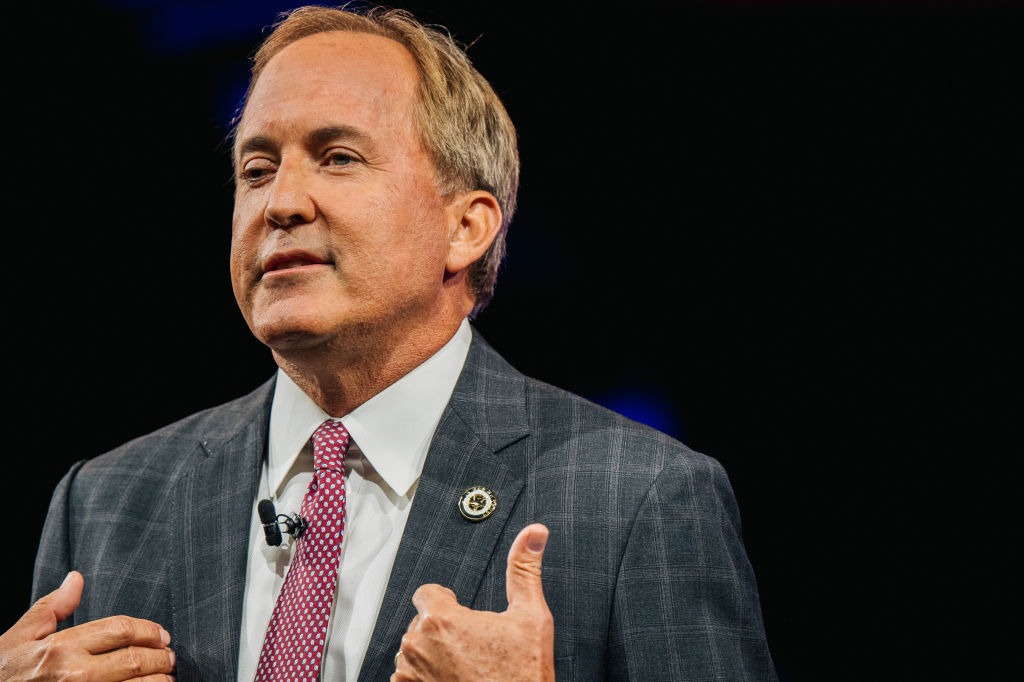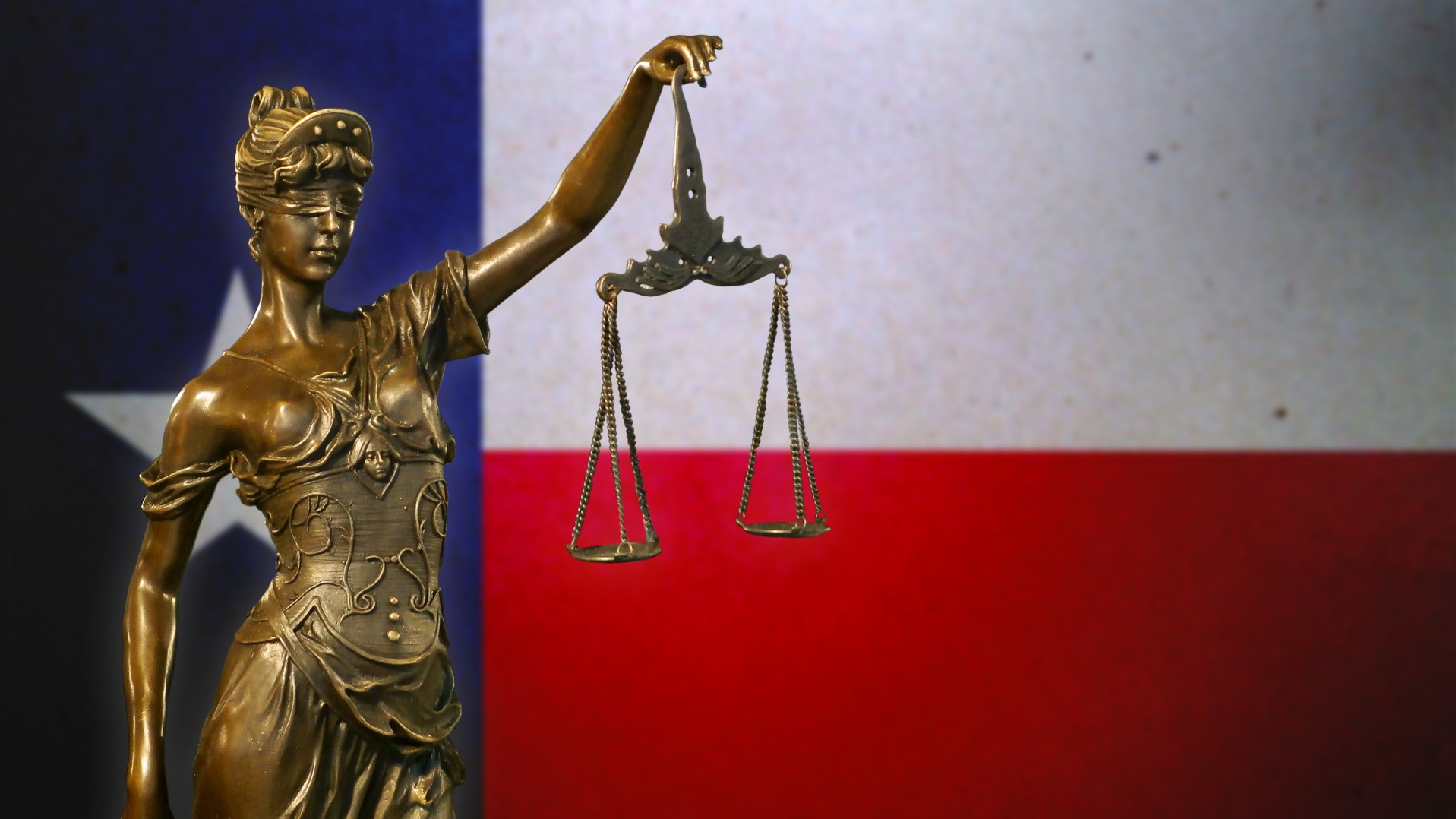Texas Attorney General Ken Paxton denies running away to avoid subpoena


A free daily email with the biggest news stories of the day – and the best features from TheWeek.com
You are now subscribed
Your newsletter sign-up was successful
Texas Attorney General Ken Paxton ran away in a truck to avoid being served a subpoena on Monday, The Texas Tribune reports.
In an affidavit filed on Monday, Ernesto Martin Herrera, a process server, detailed his attempt to serve the attorney general with a subpoena for a federal court hearing scheduled for Tuesday. The hearing is part of a lawsuit from nonprofits seeking to help Texas locals pay for out-of-state abortions.
Herrera wrote that when he arrived at the Paxton residence, a woman who identified herself as "Angela" (Paxton is married to state Sen. Angela Paxton) told him that Paxton was indisposed, but Herrera replied that he would wait.
The Week
Escape your echo chamber. Get the facts behind the news, plus analysis from multiple perspectives.

Sign up for The Week's Free Newsletters
From our morning news briefing to a weekly Good News Newsletter, get the best of The Week delivered directly to your inbox.
From our morning news briefing to a weekly Good News Newsletter, get the best of The Week delivered directly to your inbox.
After waiting, he saw Paxton emerge and approach a vehicle in the driveway. Herrera began to approach Paxton, calling him by name. Herrera wrote, "As soon as he saw me and heard me call his name out, he turned around and RAN back inside the house through the same door in the garage." The word 'ran' is emphasized in capitals and bold print in the affidavit.
Later, Angela exited the house and started another truck in the driveway. He observed Paxton running out of the house and approaching the car. Herrera attempted to deliver the subpoena, but the attorney general ignored him. Herrera left the documents on the driveway, and the vehicle took off.
The attorney general replied to the Tribune report in a tweet on Monday evening, claiming that he left because he was concerned about his safety.
A free daily email with the biggest news stories of the day – and the best features from TheWeek.com
Theara Coleman has worked as a staff writer at The Week since September 2022. She frequently writes about technology, education, literature and general news. She was previously a contributing writer and assistant editor at Honeysuckle Magazine, where she covered racial politics and cannabis industry news.
-
 The ‘ravenous’ demand for Cornish minerals
The ‘ravenous’ demand for Cornish mineralsUnder the Radar Growing need for critical minerals to power tech has intensified ‘appetite’ for lithium, which could be a ‘huge boon’ for local economy
-
 Why are election experts taking Trump’s midterm threats seriously?
Why are election experts taking Trump’s midterm threats seriously?IN THE SPOTLIGHT As the president muses about polling place deployments and a centralized electoral system aimed at one-party control, lawmakers are taking this administration at its word
-
 ‘Restaurateurs have become millionaires’
‘Restaurateurs have become millionaires’Instant Opinion Opinion, comment and editorials of the day
-
 ABC News to pay $15M in Trump defamation suit
ABC News to pay $15M in Trump defamation suitSpeed Read The lawsuit stemmed from George Stephanopoulos' on-air assertion that Trump was found liable for raping writer E. Jean Carroll
-
 Judge blocks Louisiana 10 Commandments law
Judge blocks Louisiana 10 Commandments lawSpeed Read U.S. District Judge John deGravelles ruled that a law ordering schools to display the Ten Commandments in classrooms was unconstitutional
-
 Texas court allows execution in shaken baby syndrome case
Texas court allows execution in shaken baby syndrome caseUnder the radar The state could be the first to carry out the death penalty for someone convicted due to the diagnosis, despite its controversial applicability
-
 ATF finalizes rule to close 'gun show loophole'
ATF finalizes rule to close 'gun show loophole'Speed Read Biden moves to expand background checks for gun buyers
-
 Hong Kong passes tough new security law
Hong Kong passes tough new security lawSpeed Read It will allow the government to further suppress all forms of dissent
-
 France enshrines abortion rights in constitution
France enshrines abortion rights in constitutionspeed read It became the first country to make abortion a constitutional right
-
 Texas executes man despite contested evidence
Texas executes man despite contested evidenceSpeed Read Texas rejected calls for a rehearing of Ivan Cantu's case amid recanted testimony and allegations of suppressed exculpatory evidence
-
 Supreme Court wary of state social media regulations
Supreme Court wary of state social media regulationsSpeed Read A majority of justices appeared skeptical that Texas and Florida were lawfully protecting the free speech rights of users
